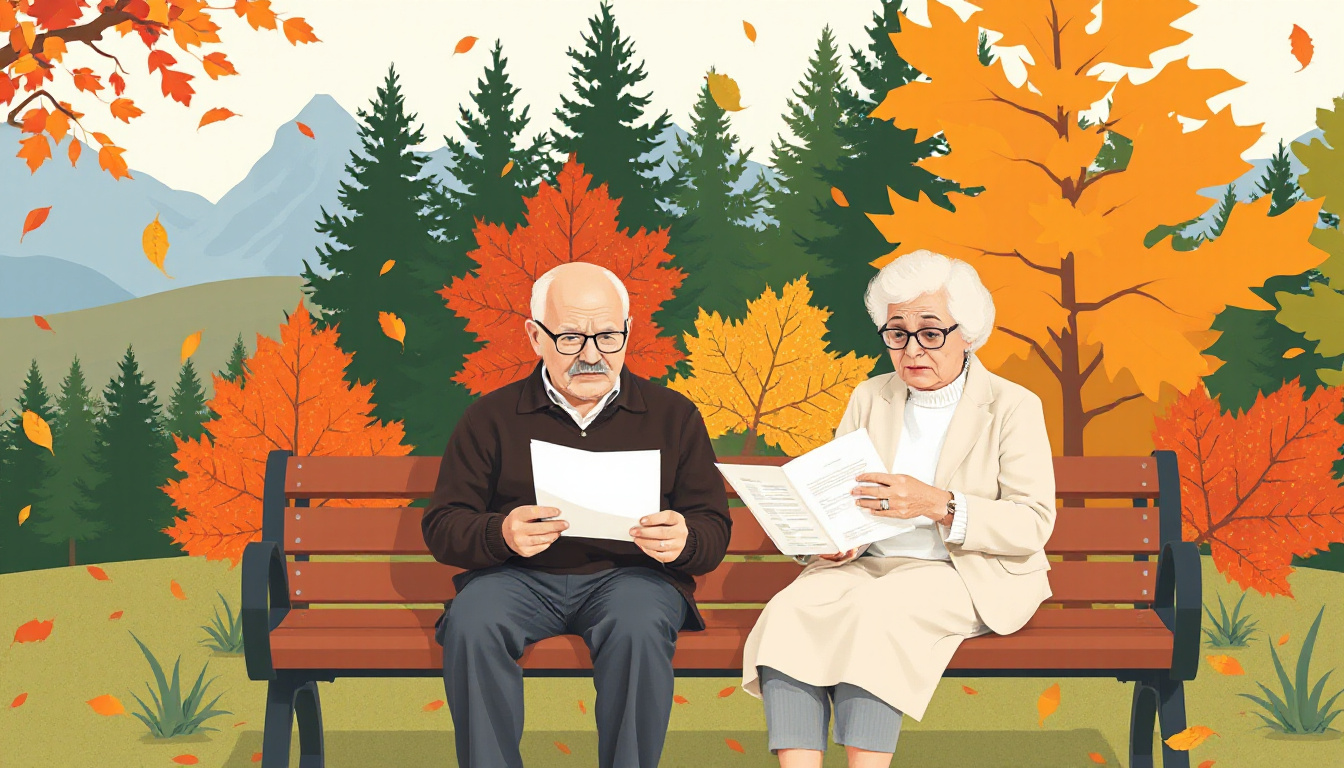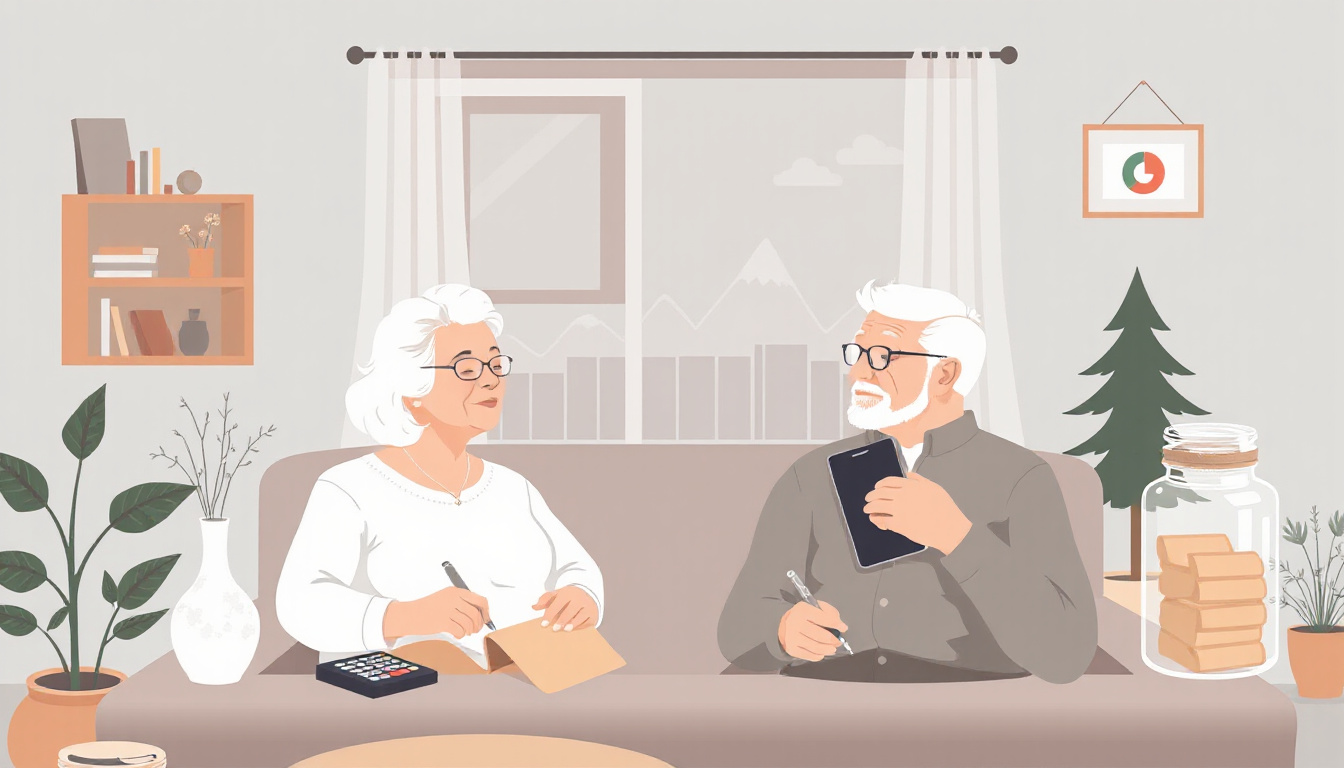What Happens to Debt When You Retire in Canada?

Tyler McAllister
Senior Finance Writer
As you approach retirement, you may wonder: what happens to debt when you retire in Canada? The reality is that debt can significantly impact your financial health during retirement. Understanding the types of debt you may have, the strategies for managing these debts, and the implications of your retirement income on repayment is crucial. This article explores the effects of debt on retirement, effective strategies for managing it, and legal options available for debt relief. By comprehensively understanding these concepts, you can plan for a secure and financially stable retirement.

Key Takeaways
- Retirement can significantly affect how different types of debt are managed.
- Planning ahead with debt reduction strategies is crucial for a more comfortable retirement.
- Fixed retirement income may limit the ability to repay outstanding debts effectively.
- Legal options are available for managing debt obligations after retirement, including bankruptcy and consumer proposals.
- Understanding the implications of retirement income is key to making informed debt decisions.
Understanding Debt Types and Their Impact on Retirement
When you retire, the impact of any existing debt in Canada requires careful consideration. Understanding the different types of debt is essential. Secured debts, such as mortgages and auto loans, are backed by collateral. If unpaid, lenders can repossess the asset, creating financial strain. Conversely, unsecured debts like credit cards and personal loans lack collateral, often leading to higher interest rates. This can consume a portion of your retirement income if not managed appropriately.
When retiring with debt, you still possess obligations that demand regular payments, which can affect your cash flow. For many Canadians, the transition to a fixed income can heighten stress if debts remain unpaid. Prioritizing the repayment of high-interest debt before retirement can alleviate concerns, while conversely, taking on additional debt for lifestyle enhancements might jeopardize your financial stability after you stop working. Therefore, understanding how debt interacts with your retirement savings is vital for a successful financial future.
Strategies for Managing Debt Before Retirement
As you approach retirement, it’s crucial to assess your financial situation, including any debt you carry. Many Canadians wonder, what happens to debt when you retire? The impact of debt on your retirement can vary based on several factors, including the type of debt, your income during retirement, and how you manage your finances leading up to this significant life change. Here are some strategies for managing debt before retirement, enabling you to enjoy a more secure financial future:
1. Make a Comprehensive Debt Plan: Start by listing all your debts, including credit cards, mortgages, and personal loans. Understand your total debt load and prioritize payment strategies.
2. Create a Budget: Develop a realistic budget that reflects your income and expenses. Allocating part of your income towards debt repayment can help reduce your overall debt before retirement.
3. Consider Debt Consolidation: If you have high-interest debts, consolidating them into a lower-interest loan could save you money on interest and help you pay off your debts faster.
4. Increase Your Savings: Using any extra money to pay down debt or add to your retirement savings can provide a buffer against financial anxiety during retirement.
5. Consult a Financial Advisor: A professional can offer tailored advice based on your specific situation to help you devise a debt management strategy that suits your retirement goals.
‘The hardest thing to understand in the world is the income tax.’ – Albert Einstein

Effects of Retirement Income on Debt Repayment
## Effects of Retirement Income on Debt Repayment
When you retire in Canada, your income structure often changes significantly. Pension plans, government benefits like the Canada Pension Plan (CPP) and Old Age Security (OAS), along with any savings or investment income, become your primary sources of income. Understanding how these income sources affect your debt repayment is crucial.
1. Fixed Income: With most retirees relying on fixed incomes, such as pensions, it becomes imperative to manage existing debts effectively. Fixed monthly payments can take up a larger proportion of your income, potentially limiting your cash flow for other essential expenses.
2. Interest Rates: The type of debt influences how manageable it will be during retirement. If you have high-interest debt (like credit cards), retirement could amplify financial stress, making it hard to keep up with payments. Conversely, low-interest debt may not impact your finances as harshly, allowing you to prioritize other financial needs.
3. Debt Prioritization: Retirees often need to prioritize debts based on urgency and interest rates. It’s ideal to pay off high-interest and non-deductible debts first, while leveraging low-interest options where possible.
4. Risk of Insufficient Funds: If your debt obligations consume too much of your retirement income, there’s a risk of falling into financial hardship. This can result in needing to make lifestyle changes or, in extreme cases, may lead to filing for bankruptcy.
5. Planning: Proper financial planning before retirement will help mitigate the negative effects that debt can have on your retirement income. This includes assessing your total debts, expected income from various sources, and creating a budget to help you manage your expenses effectively.
In sum, understanding how debt interacts with retirement income in Canada is vital to ensure a financially stable retirement. By being proactive and planning ahead, you can alleviate some of the challenges associated with debt repayment after retirement.
Legal Considerations and Potential Options for Debt Relief in Retirement
As you approach retirement, understanding the impact of debt on your financial future becomes increasingly critical. In Canada, you might wonder, ‘What happens to debt when you retire?’ The answer isn’t straightforward, as it largely depends on the type of debt you hold and your overall financial situation.
Firstly, if you have outstanding debts, such as mortgages, credit cards, or personal loans, they do not disappear upon retirement. Rather, your income structure may change, transitioning from a regular paycheck to fixed income sources such as pensions or retirement savings. This shift can impact your ability to manage and repay your debts.
Let’s consider several legal options available for debt relief in retirement:
1. Debt Consolidation: You can consolidate your debts into a single loan with a lower interest rate. This can simplify payments and potentially reduce total interest costs.
2. Credit Counselling: Working with a licensed credit counsellor can help you create a manageable budget, which is essential for navigating debt in retirement. They may also assist in negotiating lower payments with creditors.
3. Consumer Proposals: If your debt exceeds $5,000, you might consider filing a consumer proposal. This legal process allows you to make a formal agreement with your creditors to pay back a percentage of what you owe over a set period.
4. Bankruptcy: As a last resort, filing for bankruptcy can discharge your debts, though it comes with significant long-term financial repercussions and can impact your credit score for up to seven years.
Each option has its pros and cons, so it’s vital to consult with a financial advisor or a certified insolvency trustee to explore what works best for your unique situation. The key is to directly address any outstanding debts before they hinder your retirement lifestyle.
Frequently Asked Questions
What types of debt can retirees have in Canada?
Retirees in Canada can have various types of debt, including mortgages, personal loans, credit card debt, and lines of credit. Understanding the type of debt is crucial for managing it effectively during retirement.
How can I manage my debt before I retire?
To manage debt before retirement, consider creating a budget to track income and expenses, paying down high-interest debt first, consolidating loans, and seeking financial advice to develop a manageable repayment plan.
How does retirement income affect my ability to pay off debt?
Retirement income, such as pensions, government benefits, and retirement savings, can impact your available cash flow for debt repayment. It’s important to assess your income sources and create a plan that aligns with your fixed retirement budget.
Are there legal options available to help with debt relief in retirement?
Yes, retirees in Canada have several legal options for debt relief, including filing for bankruptcy or a consumer proposal, which can help restructure or eliminate unmanageable debt. Consulting with a licensed insolvency trustee is recommended.
What happens to my debt if I pass away during retirement?
If a retiree passes away in Canada, their debts must be paid out of their estate. If there are sufficient assets, creditors may be paid; if not, debts may be forgiven, depending on the type of debt and applicable laws.
